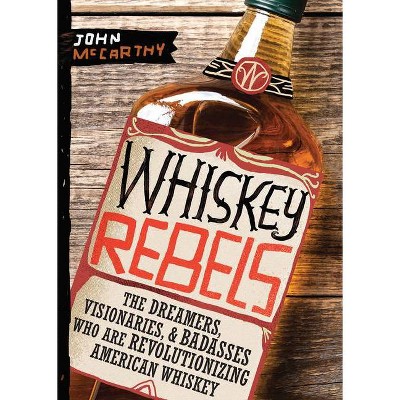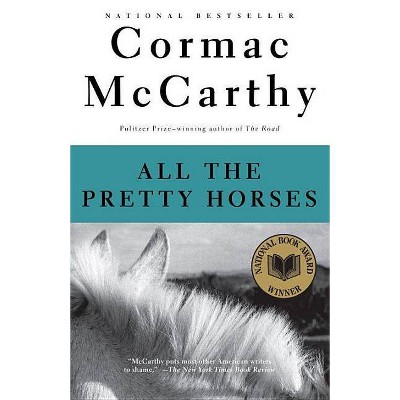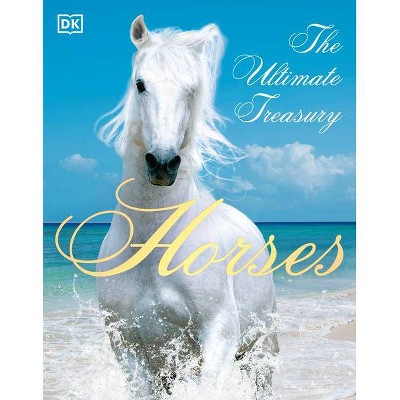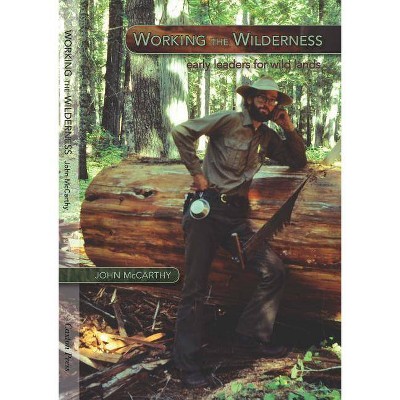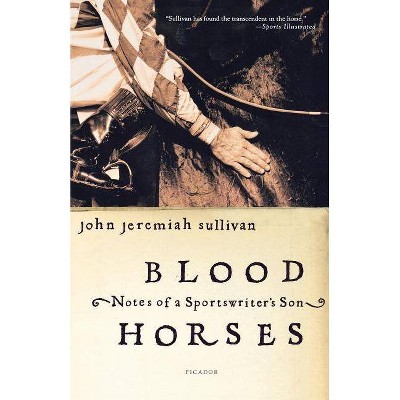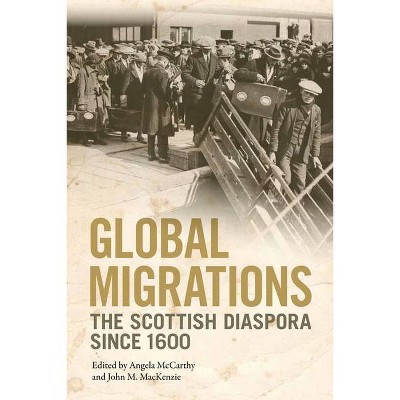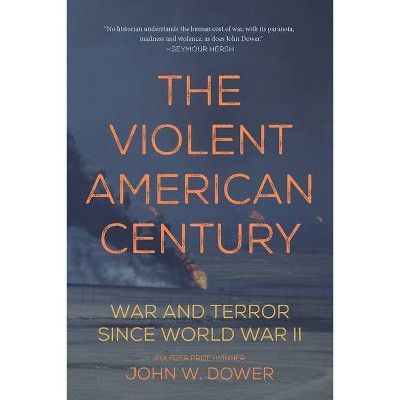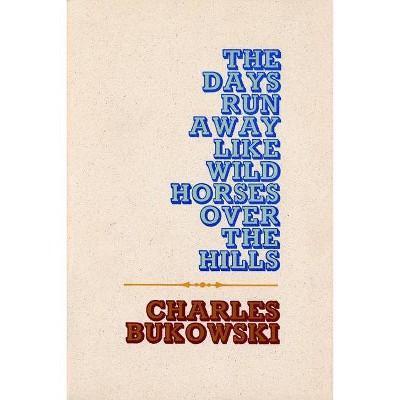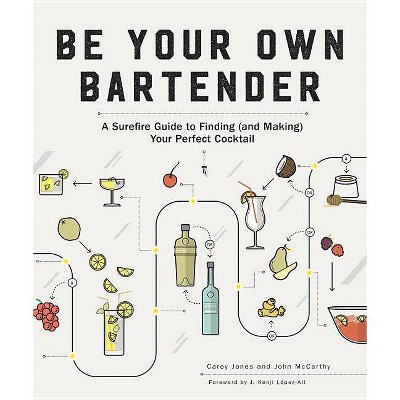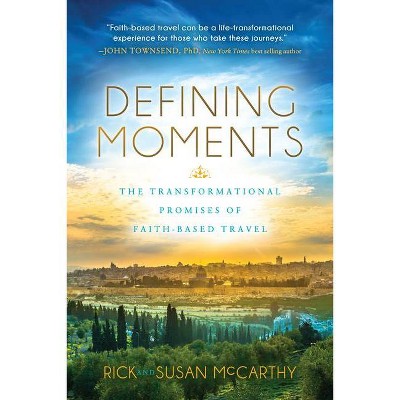Scared Violent Like Horses - by John McCarthy (Paperback)
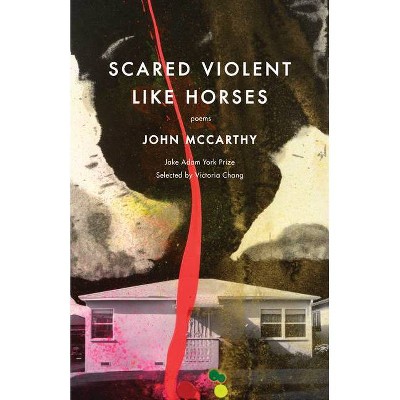
Similar Products
Products of same category from the store
AllProduct info
<p/><br></br><p><b> About the Book </b></p></br></br><b>"A stunning overlap of a lost boy and lost landscape through the lens of a gifted poet's magical linguistic and storytelling abilities." --VICTORIA CHANG</b><p/><br></br><p><b> Book Synopsis </b></p></br></br><b>Selected by Victoria Chang as winner of the Jake Adam York Prize, John McCarthy's <i>Scared Violent Like Horses</i> is a deeply personal examination of violent masculinity, driven by a yearning for more compassionate ways of being.</b> <p/> McCarthy's flyover country is populated by a family strangled by silence: a father drunk and mute in the passenger seat, a mother sinking into bed like a dish at the bottom of a sink, and a boy whose friends play punch-for-punch for fun. He shows us a boy struggling to understand "how we deny each other, daily, so many chances to care" and how "we didn't know how to talk about loss, / so we made each other lose." Constant throughout is the brutality of the Midwestern landscape that, like the people who inhabit it, turns out to be beautiful in its vulnerability: sedgegrass littered with plastic bags floating like ghosts, dilapidated houses with abandoned Fisher Price toys in the yard, and silos of dirt and rust under a sky that struggles to remember the ground below. <p/> With arresting lyricism and humility, <i>Scared Violent Like Horses</i> attends to the insecurities that hide at the heart of what's been turned harsh, offering a smoldering but redemptive and tender view of the lost, looked over, and forgotten. <p/><p/><br></br><p><b> Review Quotes </b></p></br></br><br><b>Praise for <i>Scared Violent Like Horses</i></b> <p/> McCarthy's book of Midwestern threnodies begins in image and ends in solemnity . . . McCarthy's poems are profluent stories--a joy to marvel at this skill, impressive considering the book's bleak landscape.<b>--The Millions</b> <p/> "McCarthy has whittled out a sense of freedom from the heartache of the past, and the reader is left with a remarkable vision."<b>--<i>Booklist</i></b> <p/> In unshowy, plaintive, quietly delivered language that should not be mistaken for affectless--and that can be stabbed through with surprisingly piercing metaphor--McCarthy vivifies a place and hard way of life too little visited. <b>--<i>Library Journal</i></b> <p/> <i>"Scared Violent Like Horses</i> is the story of a 'lost boy with a quiet ache'--a story about a boy and a young man who grows up amid the landscape of a vast yet specific Midwest filled with switchgrass, scarecrows, dead leaves, dirt, factories, and family and childhood people. It's the people the speaker is really writing about--the speaker's connection and disconnection with those who populate the landscape and the feeling of being different or not fully belonging. John McCarthy's impulse is narrative but this impulse is struck by the lightning of his linguistic powers, as in the poem, 'Switchgrass' 'A mangled cat mats the crankshaft and fan belt, / fur-shredded and soaked.' Unusual images and figurative language are in abundance: 'The cornfield's tassels are wicks burning toward the sky and the fields / are sutured by utility poles marching like a procession of crosses . . .' Ultimately, what the reader is left with is a stunning overlap of lost boy and lost landscape glimpsed through the lens of a gifted poet's magical linguistic and storytelling abilities."<b>--Victoria Chang</b> <p/> <i>"Scared Violent Like Horses</i> is a book that grabs the reader with its insistent lyric beauty. It's a book where its speaker is haunted by the empty violence and despair of a Midwestern landscape full of "smolder and silence." It's a landscape usually underestimated and derided--the "flyover country" of condescending editorials and talk show chatter. But in the hands of this poet, these hardscrabble landscapes, these haunts of hurt and hurting families and friends who show love through their thrown punches--these scenes become so relentlessly beautiful that a reader cannot look away. John McCarthy's poems have had their hold on me for a long time, and I defy anyone who reads this book not to walk away shaken, stirred, and ultimately, utterly changed." <b>--Allison Joseph</b> <p/> "Throbbing with the 'quiet ache' of the flown-over, John McCarthy's extraordinary perception and lingual deftness unveil the grit and humble grandeur of Springfield's north end. Rural Illinois's emotional brutality is rendered raw as we see into and through a young man reaching beyond the debris of a violent and damaged lineage, in search of a gentler, less destructive self."<b>--Matt Rasmussen</b> <p/> "In this devastating, gorgeous collection, John McCarthy opens up '[t]he hurt and mangled parts of us, ' the places in us where we are 'hollering fervent and raw, ' to explore the pain of abandonment and the purity of that loneliness, so that we might understand how trauma breeds desolation. 'How could we not / break the mirror we look at in the morning?' How do we escape the desolation we are? 'I carved my scalp open, ' he writes, 'until I could feel the smoke leaving my body, ' and such viscerally brutal moments in this book remind us that 'there are many different kinds of beauty.' McCarthy is a master of transforming his world into every kind."<b>--Sara Eliza Johnson</b> <p/> <b>Praise for <i>Ghost Country</i></b> <p/> "A love letter to the Midwest, John McCarthy . . . paints a familiar, blue-collar picture of the Midwest but with a dose of surrealism that enlivens the region and gives it dynamic force in his storytelling." <i><b>--Chicago Review of Books</i></b> <p/> "In John McCarthy's arresting debut, the middle of America reveals itself to be a belly full of opportunities and frustrations." <b>--Adrian Matejka</b> <p/> "In these gritty poems, McCarthy exposes a grimmer reality tainted by drugs, alcohol, poverty, and violence. This is a hardscrabble life where time stretches past into the future, back into the past, and all seems predetermined to remain the same. McCarthy's poems pay close attention to a darker middle life, and they do not flinch." <b>--Sandy Longhorn</b> <p/> "In this stunning debut, John McCarthy illuminates this complexity and curiosity of life in so-called 'flyover country.' The poems in <i>Ghost Country</i> move fiercely between violence and love with equal measure and means. This is a book that never stops opening up." <b>--Adam Clay</b> <p/> "The way McCarthy imagines and executes these lyric Midwestern narratives renders the place both familiar and strange, humdrum and ethereal. McCarthy has the craft and vision of someone who's been at this for a very long time." <b>--Chad Simpson</b> <p/> "The poems of <i>Ghost Country</i> are about desperate situations and places we know. Verbal fights in pick-up trucks, a high school homecoming, and an alcoholic preacher all populate this memorable book . . .To borrow some of the author's language, <i>Ghost County</i> throbs with anger. What these poems reveal is the beauty of those things we might find commonplace now. McCarthy shines a spotlight on the familiar and glossed over." <b>--Curbside Books & Records</b><br><p/><br></br><p><b> About the Author </b></p></br></br>John McCarthy is the author of one previous collection, <i>Ghost Country</i>, which was named a Best Poetry Book of 2016 by the <i>Chicago Review of Books</i>. McCarthy is the 2016 winner of <i>The Pinch</i> Literary Award in Poetry, and his work has appeared in <i>Best New Poets 2015</i>, <i>Hayden's Ferry Review</i>, <i>Passages North</i>, <i>Sycamore Review</i>, <i>Zone 3</i>, and in anthologies such as <i>New Poetry from the Midwest 2017</i>. He received an MFA in Creative Writing from Southern Illinois University Carbondale and serves as an editor of <i>RHINO</i> magazine and the <i>Quiddity</i> international literary journal and public radio program.
Price History
Price Archive shows prices from various stores, lets you see history and find the cheapest. There is no actual sale on the website. For all support, inquiry and suggestion messagescommunication@pricearchive.us
